
Tainted Grail: The Fall of Avalon Review
In a lot of ways, I feel a bit late to the party for Tainted Grail: The Fall of Avalon. Not only did I not play the game originally at release, but the game has been playable in early access for over two years. The whole story even spans a board game and tabletop RPG. In fact, the two video game projects (the other being Tainted Grail: Conquest) splintered off from what was initially intended to be a conversion of the board game of the same name.
I was not really in the crosshairs during the development of Avalon, but had noticed a fair bit of positive reception when it finally released back in May. Having been on a bit of a first-person RPG streak this year after playing both Kingdom Come Deliverance titles and also Avowed, I figured now was as good a time as any to try something different to see if Avalon could be a sort of diamond in the rough.
Tainted Grain: The Fall of Avalon ended up surprising me in several ways that I didn't expect, and I found myself really glad that I gave it a try on a whim. However, I also quickly realized that despite already being late, I still would have benefited from waiting a little bit longer, since the game unfortunately still manages to feel underbaked.
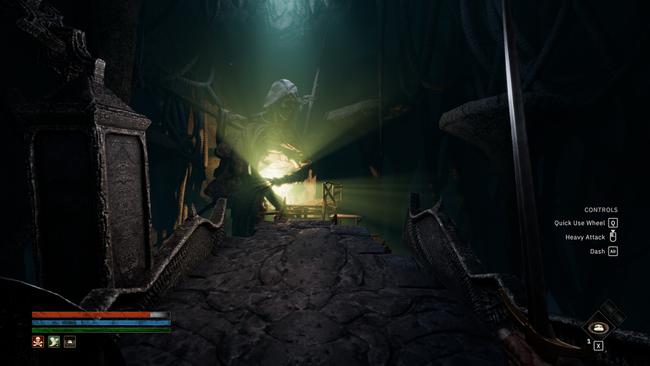
Avalon has a premise that echoes something that I feel I've read more than a couple of times in various press releases at RPG Site; the main story evokes classic Arthurian legends, except darker and edgier. It's the sort of well-worn pitch that personally elicited a roll of the eyes rather than genuine excitement. However, after pushing through my initial unearned scorn and putting some real time into the game, I quickly found that my preconceptions were too judgmental for no real reason.
When starting out, the player-character wakes up in what is effectively an insane asylum-slash-prison for people suffering from the enigmatic plague known as the Red Death. Early on, the player learns that King Arthur and the Round Table fled from their homelands to the island of Avalon several hundred years ago in an attempt to escape the Red Death, but ended up in a long and drawn-out war instead. Beyond that, a mysterious force known as the Wyrdness inhabits the island, a sort of corrupted fog that required Arthur and Merlin to build several lit Menhirs to keep at bay.
As the player manages to escape the asylum with the help of an enigmatic knight named Caradoc, it becomes very clear that Avalon is still hanging on by a thread and is still at the mercy of all manner of monsters and beasts -- not to mention the Wyrdness and the Red Death. Whatever King Arthur attempted to accomplish so long ago clearly did not result in any lasting peace or prosperity.
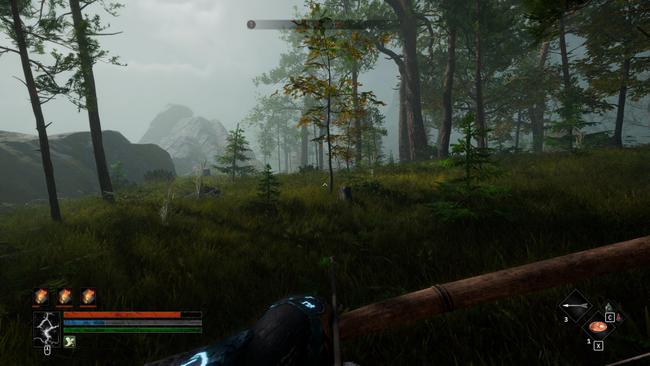
Eventually, whatever spirit that remains of the legendary king ends up inhabiting the player's body. The story even ends up placing Arthur as a sort of secondary protagonist with whom the player can converse with at camp as a sort of sounding board. Think Cyberpunk 2077's Johnny Silverhand or Elden Ring's Melina. The player quickly learns that as Avalon continues to exist on the edge of collapse, multiple people have attempted to resurrect Arthur several times to help remedy the issues, but without any lasting success. The result is that Arthur himself has become compromised in a sense, and now only has loose, faded memories of the events that transpired hundreds of years ago. This leaves it to the player to put together the pieces and really determine what actually happened regarding Arthur's role in the past and how responsible he might be for the state of Avalon in the present.
Despite my off-the-cuff misgivings about the narrative setup, I ended up finding this to be quite a fascinating and compelling story framework. Aided by some fantastic voice acting, Arthur eventually reveals himself to be a multi-faceted and complex character that I really enjoyed exhausting the (far too limited) dialogue options with. Memory scenes and flashbacks slowly unveil a compassionate and earnest King who seems eager to earn and keep the trust of his subjects, but also a man who was willing to stoop to desperate, unethical measures to ensure victory at any cost. This is made more complicated due to the fact that Arthur, in his current state, can often only remember the broad strokes what he was trying to accomplish, but isn't able to reflect on the eventual outcome until aided by the player, now hundreds of years removed from those events. The main downside here is that after Act 1, I found that my opportunities to actually have any dialogue options at all with Arthur shrank immensely, more on that later.
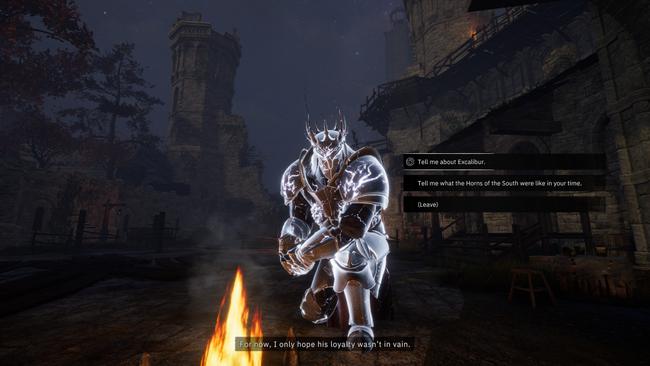
The vibe of The Fall of Avalon is incredibly bleak. Corpses and sinews and blood frequently dot the environment, while skulls and zombies are frequent elements of area and enemy design. Monsters include giant maggots, corrupted humans, and leshen-like demigods. The soundtrack is often accompanied by Celtic-style chanting and low droning instrumentation. At first it can feel like an indulgence of everything a little bit too edgy, but after acclimating to the setting after a while, I found myself generally on board with the end result. The overly bleak nature of many areas of the game manage to make the sparse moments of serenity stand out a whole lot more boldly.
After exploring the world a little bit and starting to piece together past events, I eventually found myself interacting with several characters on Avalon, some trying to exercise whatever power they have to maintain whatever little order they can, while many are just trying to get by. While there is a fairly standard quest log with a standard suite of objectives (craft this object, defeat these enemies, retrieve this item, and so on), the quests do manage to help teach the current status of the world and provide some additional context to the story at large. Interestingly enough, there is nothing that indicates where the player can find new quests, markers and points-of-interest are only shown for quests that are already underway. It was up to me to take the first step to talk to the denizens of Avalon to pick up objectives and start new quests, and the game would not actually guide me until after this first interaction. I felt this was a nice way to help contextualize the player-character's involvement in the different quest objectives without it resorting to simply being a floating exclamation point that I felt obligated to engage with.
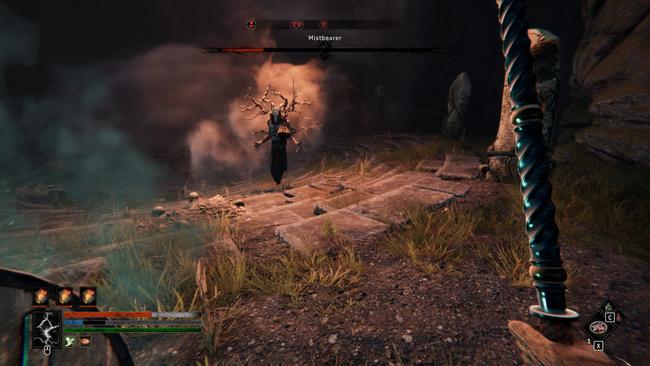
While Skyrim seems to be a natural point of comparison when describing any fantasy first-person RPG, I found that Avowed is actually a good contemporary point of comparison on many fronts. The game takes place over 3 large but separated land masses, each one dotted with interior locations like shrines, tombs, and caves. Quests and exploration often rewarded me with unique magical equipment, and the crafting system allows me to exchange materials to keep upgrading every piece of weapon and armor, so no gear ever truly became outclassed as long as it had a magic trait that fit my character build.
Combat feels pretty similar to Avowed as well, with flashy spell effects and a regular need to reposition to avoid enemy attacks or line up with an enemy's weak point. While the melee combat isn't quite as intricate as something like Kingdom Come with its directional feints and parries, enemies will still have armor and shields that have to be taken into account when deciding where to swing my sword. There is a slight focus on buffs throughout, with consumable items, cooked foods, and spells that can apply status effects or heal the character passively over time.
One fun implementation is how the spell system works. Individual magic spells are equipped to each hand, similar to any other weapon or shield. And just like any sword, each magic spell has effectively both a 'heavy' and 'light' attack depending on how long you channel the spell. Because they are equipped like a weapon, this means that spells can be paired up with other weapon types such as swords, shields, or even other spells in the opposite hand. Fall of Avalon is a somewhat rare case where 'hybrid' style builds feel encouraged rather than purely specializing into one playstyle or another.
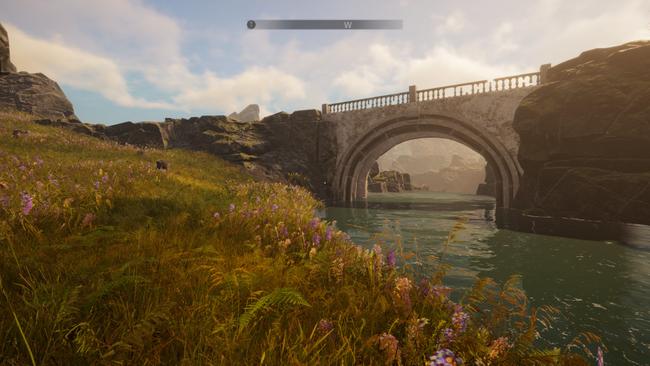
Unfortunately, many of the perks in Avalon's overall progression system are entirely passive and percentage-based. With each point, I found myself slotting perks with modifiers like "critical chance increased by 5%" or "food regenerates 10% more health." Modifiers on magic gear are also similar, simply providing a basic percentage buff to a certain type of damage. There are a few cases where there are some fun synergies such as equipping one perk that gives critical hits a chance to cause the bleed status effect, plus finding another perk that causes additional damage to bleeding enemies, but overall the buildcraft is a bit streamlined and math-y in this way.
Certain percentage-based modifiers taking effect at certain health or stamina thresholds is about as intricate as it gets. By the back-half of the game, I had stacked enough basic damage multipliers based on my weapon type and skill selection that I was overpowering enemies with ease. I think I would have liked to see an overall lower number of perks, with each individually providing more meaningful shakeups to the gameplay once they are selected.
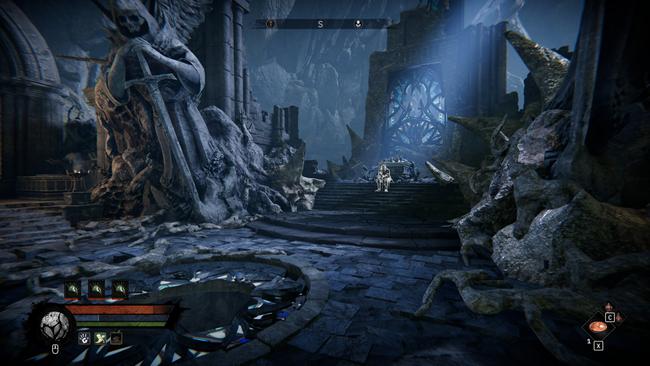
The sheer number of quests in Avalon is quite impressive. In each Act, I found myself frequently darting all over the map to complete tasks, explore ruins, and find items. The quest design is generally pretty good, and I found myself often reading in-game lorebooks or talking to several different characters to figure out the exact ways to complete my objective if the provided waypoint markers didn't give it away. Many quests also do not have 'clean' and ideal perfect outcomes by meeting some stat threshold or having a certain piece of information that placates both sides of a conflict -- I found myself often asked to choose a side when neither option felt obviously 'more correct' than the other.
However, I did find that many quests did not really have a lasting impact on the world in a fun or meaningful way. I was still eager to complete as many quests as I could for the gold and experience rewards, and individual quests did often involve compelling characters and some fun interactions. One early quest where I ratted out a drunk gate guard to his commanding officer even resulted in him being sent to the stockades the next day. However, after this, he returned to his gate-guarding duties, never to move from his set spot again. In general, the world felt a little bit like a static playground that I couldn't quite shake a desire to just have things feel a little more dynamic.
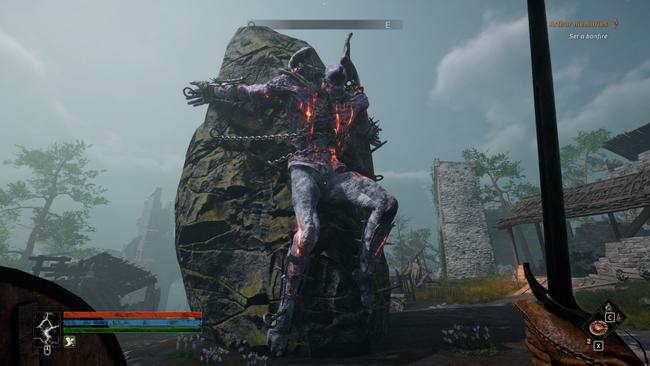
Many aspects of Tainted Grail: Fall of Avalon show a lot of promise but still felt a little bit like a work-in-progress. One key example of this occurred during my time playing, when a random patch pushed by the development team completely changed how my health and stamina meter appeared on the interface -- I have examples of both shown in the screenshots of this review. While I found myself thinking that the updated look for this part of the UI was 'fine', the fact that the UI changed so much in the middle of my playthrough still gave me the impression of something I might expect to see for a project still in early access, rather than a released title.
The development team also recently announced (and just released) an update to add nearly two-dozen more Arthur conversations in a future update. While I appreciate this since I definitely felt like the number of opportunities to speak to Arthur were far too limited especially after Act 1, it makes judging the current limited state of this component of the game a bit of a niche time capsule, the quality of the new future additions notwithstanding.
We live in an era where games are allowed to be updated, of course. It just makes my honest recommendation to those interested to wait until future patches roll through, even though I enjoyed my time with the game as-is a fair bit. While I did not run into any game-breaking or progress-preventing bugs, some of the later areas in the game, especially in Act 3, still felt a little hot off the press and not as polished as the first region.
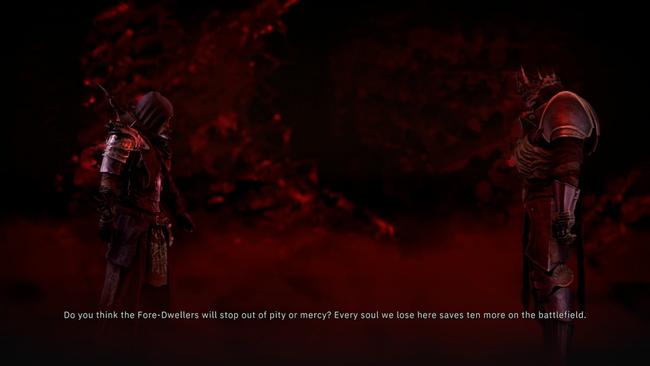
Overall, Tainted Grail: The Fall of Avalon, has the framework necessary to be an excellent game, and provides a sort of different flavor of fantasy setting than a lot of its contemporaries. For those willing and able to put up with rough spots and a general feeling of unfinishedness, there are still 50+ hours of an enjoyable RPG experience here. It just might take some additional time and tweaking in order to fully deliver on its potential.